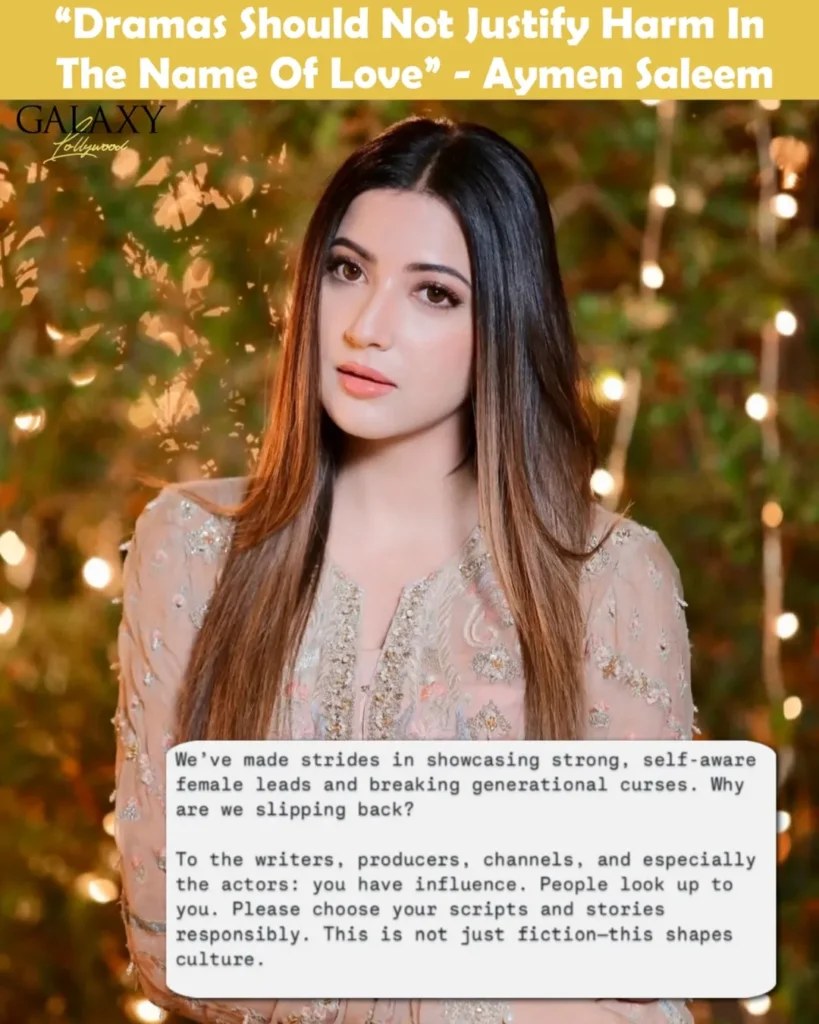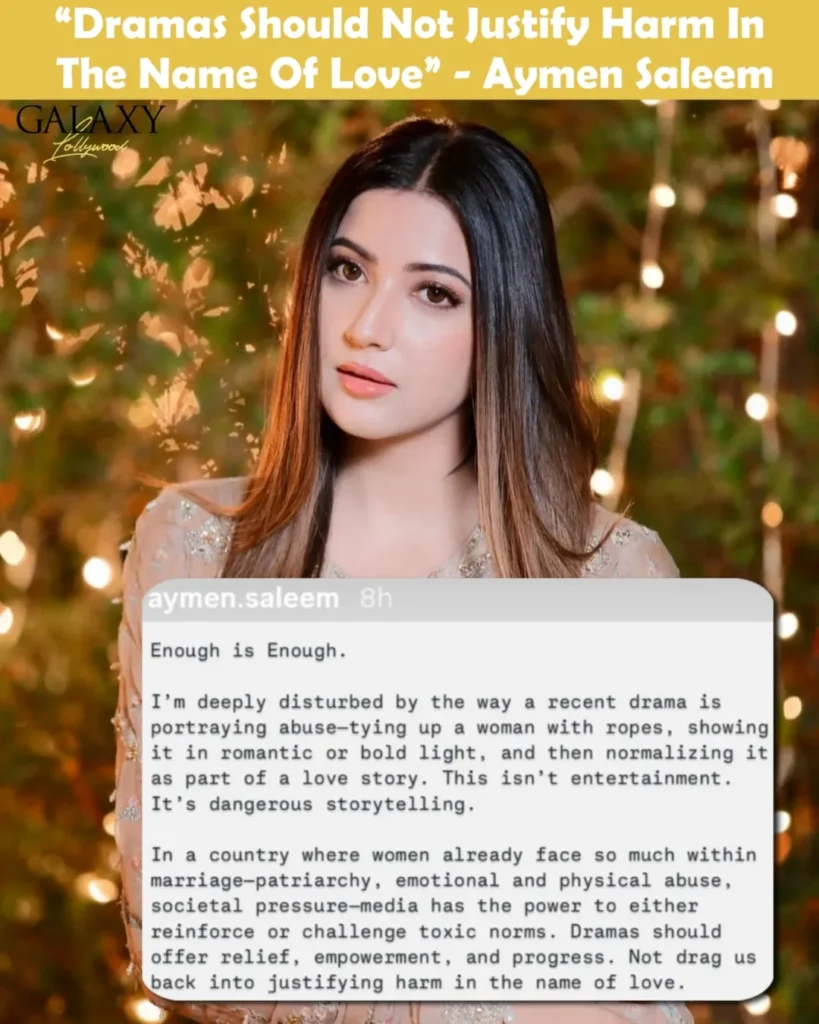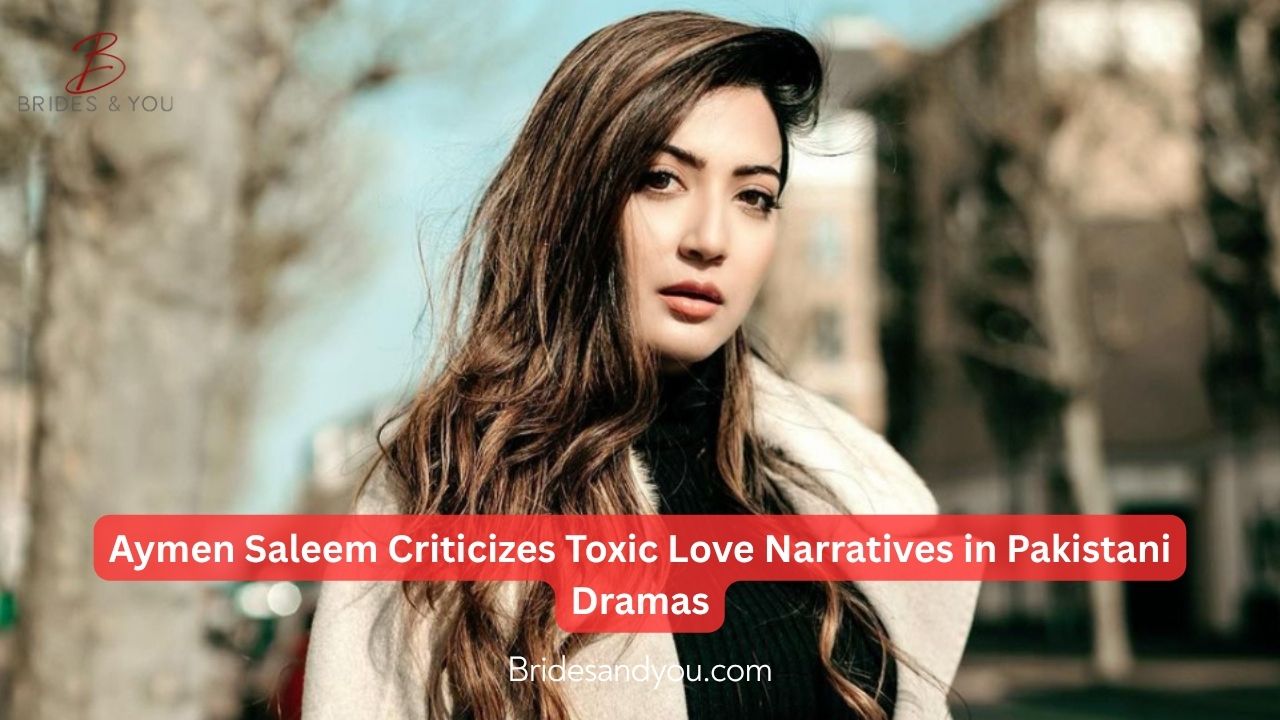In a powerful and necessary move, Pakistani actress Aymen Saleem speaks out against the dangerous romanticization of abuse in recent television dramas. Her remarks come in response to scenes from the currently airing drama Mann Mast Malang, starring Danish Taimoor and Sahar Hashmi, which have sparked major criticism for portraying harmful behavior as passionate love.
Saleem’s bold statement is a wake-up call for the entertainment industry—highlighting the urgent need to rethink how love, obsession, and control are portrayed in mainstream media.

The Drama in Question: Mann Mast Malang and Its Controversial Depictions
Mann Mast Malang has become the center of debate for scenes where the male protagonist Kabir, played by Danish Taimoor, ties the female lead Riya’s (Sahar Hashmi) feet, forcibly grabs her, and spins her around—all while romantic music plays in the background. Kabir’s obsessive behavior is masked as “passionate love,” with declarations like “Mere Jaan” used to romanticize control and manipulation.
Such portrayals risk normalizing abusive dynamics, particularly in a society where emotional and physical abuse is already underreported and dangerously under-addressed. When television shows wrap toxic behavior in a glossy romantic veneer, it creates confusion—especially for younger audiences still forming ideas about love and respect in relationships.

Aymen Saleem’s Brave Stand: “This Isn’t Entertainment, It’s Dangerous”
Using her social media platform, Aymen Saleem speaks out with heartfelt urgency:
“Enough is enough. I’m deeply disturbed by the way a recent drama is portraying abuse — tying up a woman with ropes, showing it in a romantic or bold light, and then normalising it as part of a love story. This isn’t entertainment. It’s dangerous storytelling.”

Her message resonates across a society grappling with deep-rooted patriarchy. Saleem brings attention to the harmful impact of these narratives on women already facing societal, emotional, and physical challenges in relationships.
She further elaborated that media has the ability to either reinforce or challenge toxic norms. When dramas glorify possessiveness and control, they send a dangerous message that abuse can be a form of love. “Drama should offer relief, empowerment, and power,” she asserted, “Not drag us into justifying harm in the name of love.”
Media’s Role: Reflecting and Shaping Society
Aymen Saleem’s criticism underscores a larger issue within the drama industry. Pakistani television has, over the past few years, begun showcasing empowered female characters, stories of resistance against generational trauma, and narratives that challenge conventional thinking. But some scripts still fall into regressive traps.
Her call to action isn’t just for the audience—it’s a challenge to writers, producers, directors, and actors to take accountability for their choices. What we see on TV shapes cultural norms, especially in societies where media consumption influences behavior and values.

The Path Forward: Responsible Storytelling in Dramas
This moment can—and should—serve as a turning point for the Pakistani drama industry. Aymen Saleem’s voice is not an isolated one; it’s an echo of a growing demand from audiences for content that uplifts, empowers, and educates rather than misguides.
Responsible storytelling doesn’t mean abandoning creativity. It means using the power of narrative to inspire healthier, more respectful versions of love. Let’s move forward by giving audiences stories that celebrate strength, empathy, and emotional maturity—stories where love heals instead of harms.

